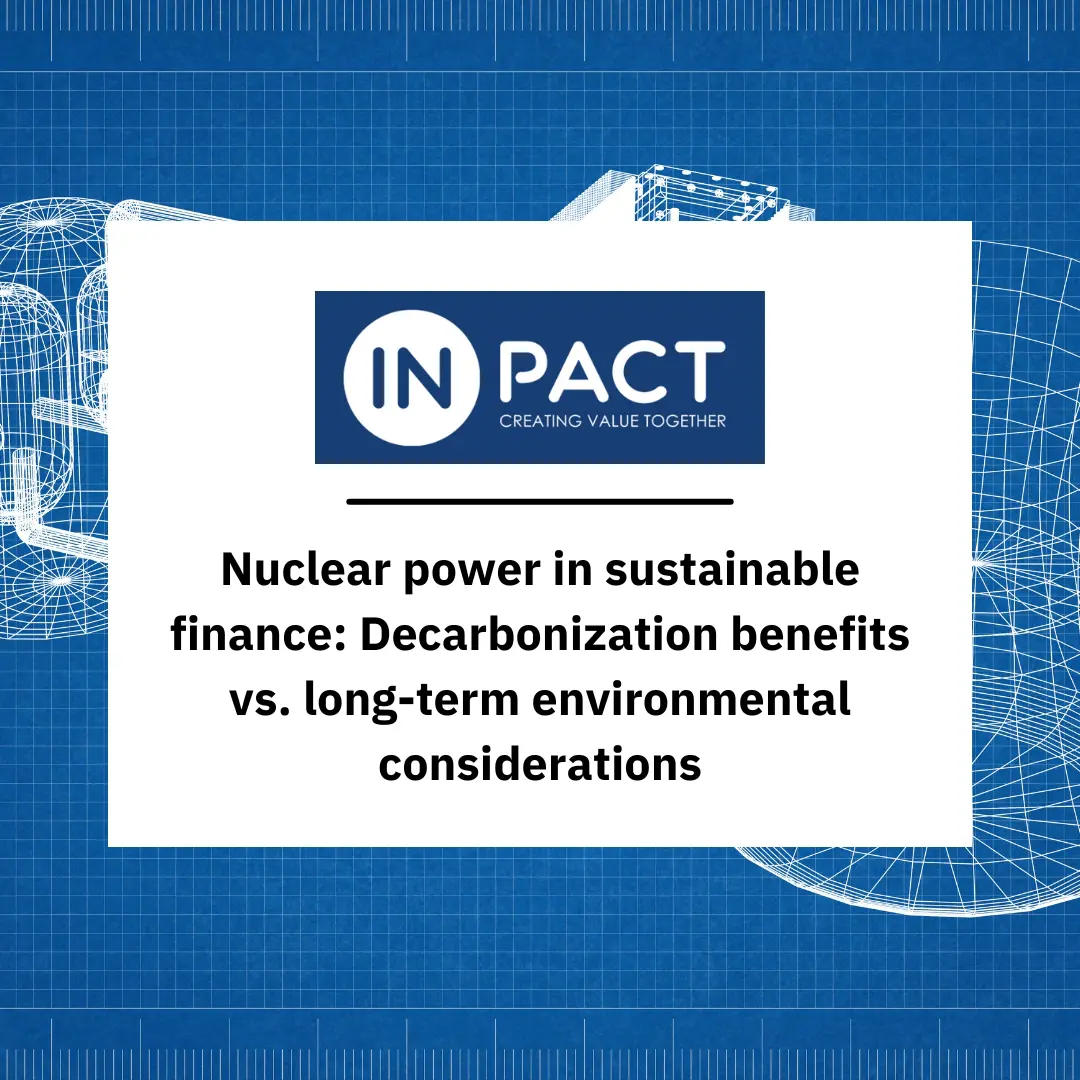
InPact Partners: Nuclear Power in Sust. Finance: Decarbonization Benefits vs Long-Term Environmental Considerations
Context and background
InPact Partners positions itself as a leading collaborative platform in private market investments, combining the expertise of its internal team with the collective intelligence of its clients to deliver both financial performance and positive societal impact. By managing discretionary mandates for large Swiss pension funds and facilitating responsible private market investments, InPact operates at the forefront of sustainable finance. Within this landscape, nuclear energy has emerged as a contentious issue: while it offers near-zero carbon emissions and potential contributions to climate goals, it raises complex environmental and social concerns, particularly around waste, safety, and long-term impacts. Its classification within sustainable finance frameworks, such as the EU Taxonomy, remains highly debated and carries significant implications for investors navigating the balance between decarbonization imperatives and responsible investment principles.
Project description
This project will evaluate nuclear energy’s place in sustainable finance, with a focus on the EU Taxonomy and its implications for InPact’s investment activities. Students will first conduct a comprehensive ESG analysis of nuclear power, reviewing different technologies, their lifecycle impacts, and the public debate surrounding them. Building on this foundation, they will critically assess nuclear’s classification within the EU Taxonomy, examining whether current treatment is justified and exploring potential adaptations to align better with sustainable finance principles and private market realities. Finally, students will design a transferable assessment framework that InPact can apply to other controversial sectors or technologies, enabling more consistent, transparent, and evidence-based investment decisions in line with both client expectations and sustainability objectives.
This project is part of the Transformative Projects: teams of 3-4 SMT students from different disciplines work together over three months on a topic developed by a company with the objective to propose new perspectives and solutions that can have the potential to transform industry or societal practices.